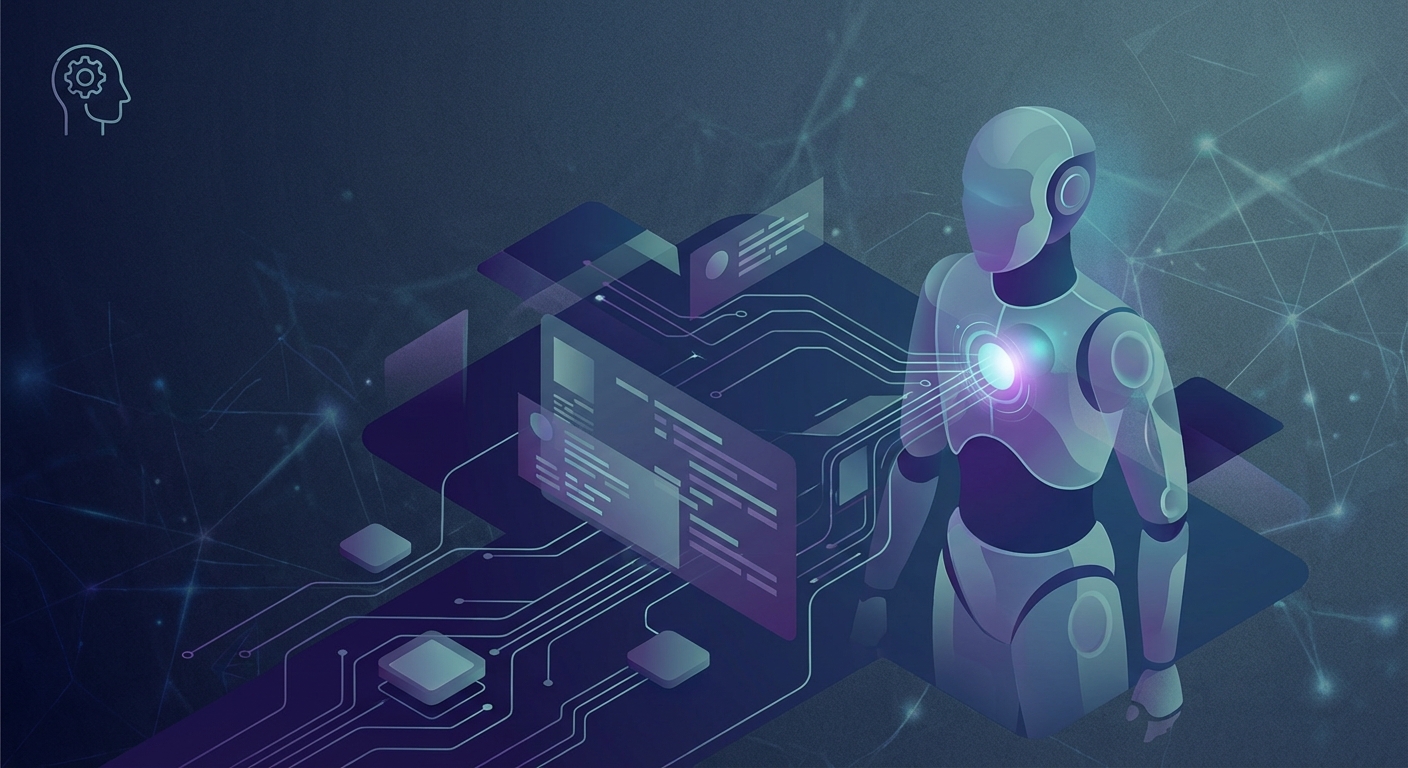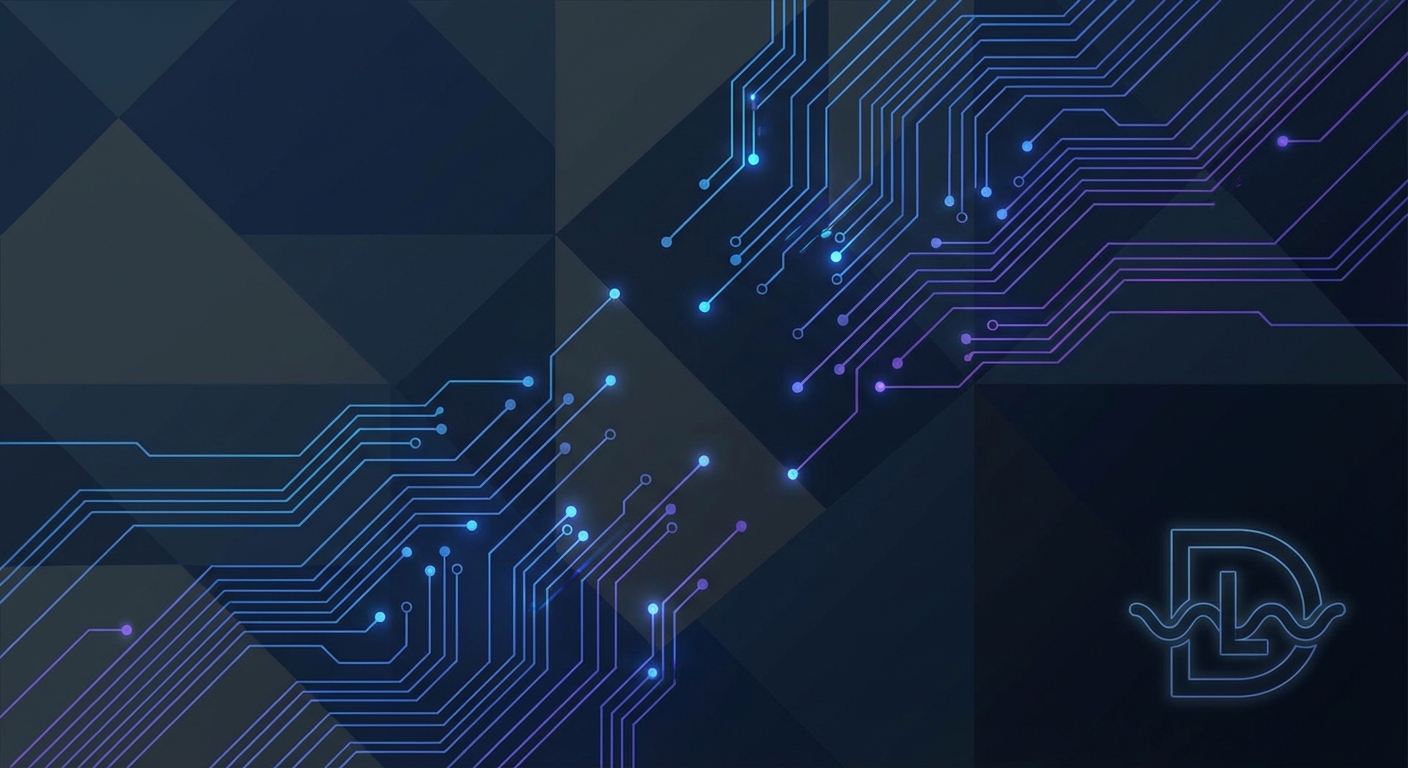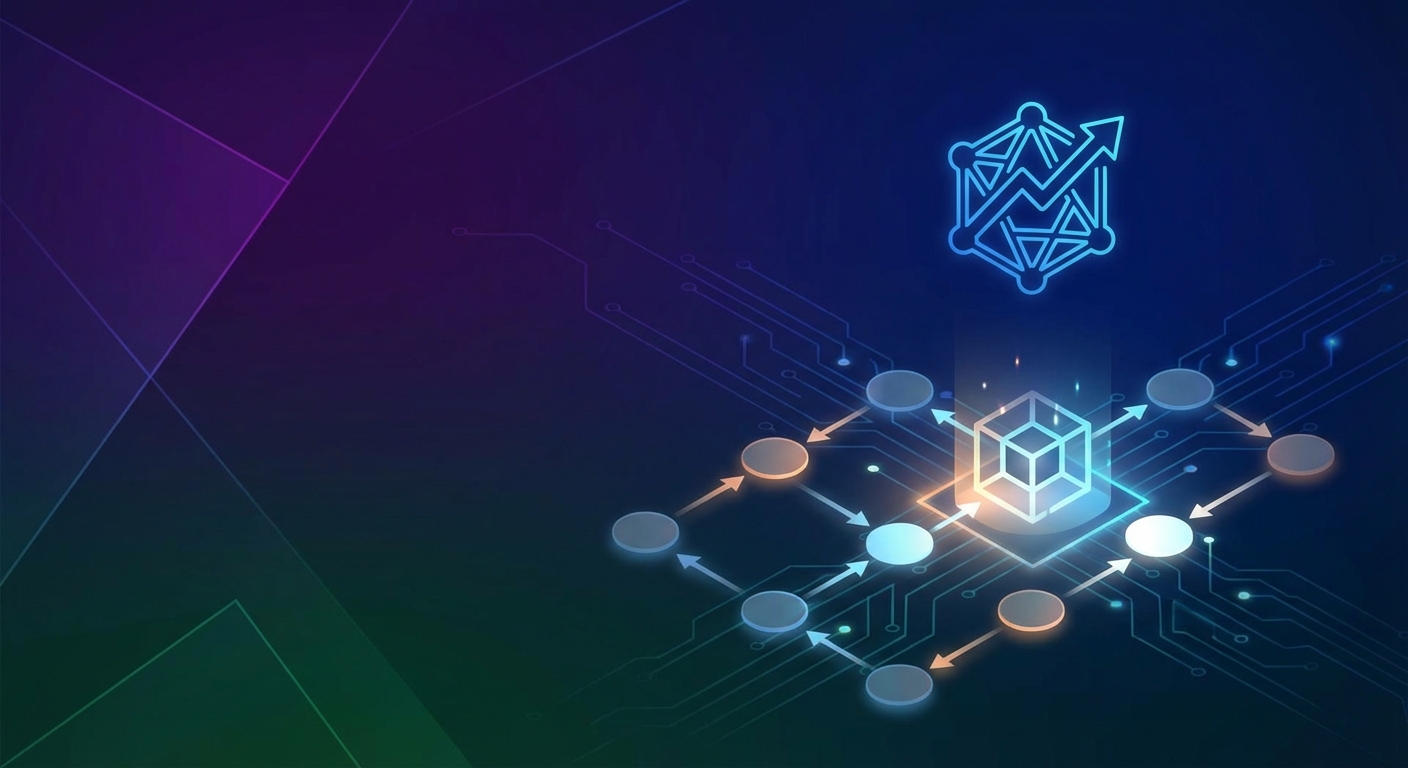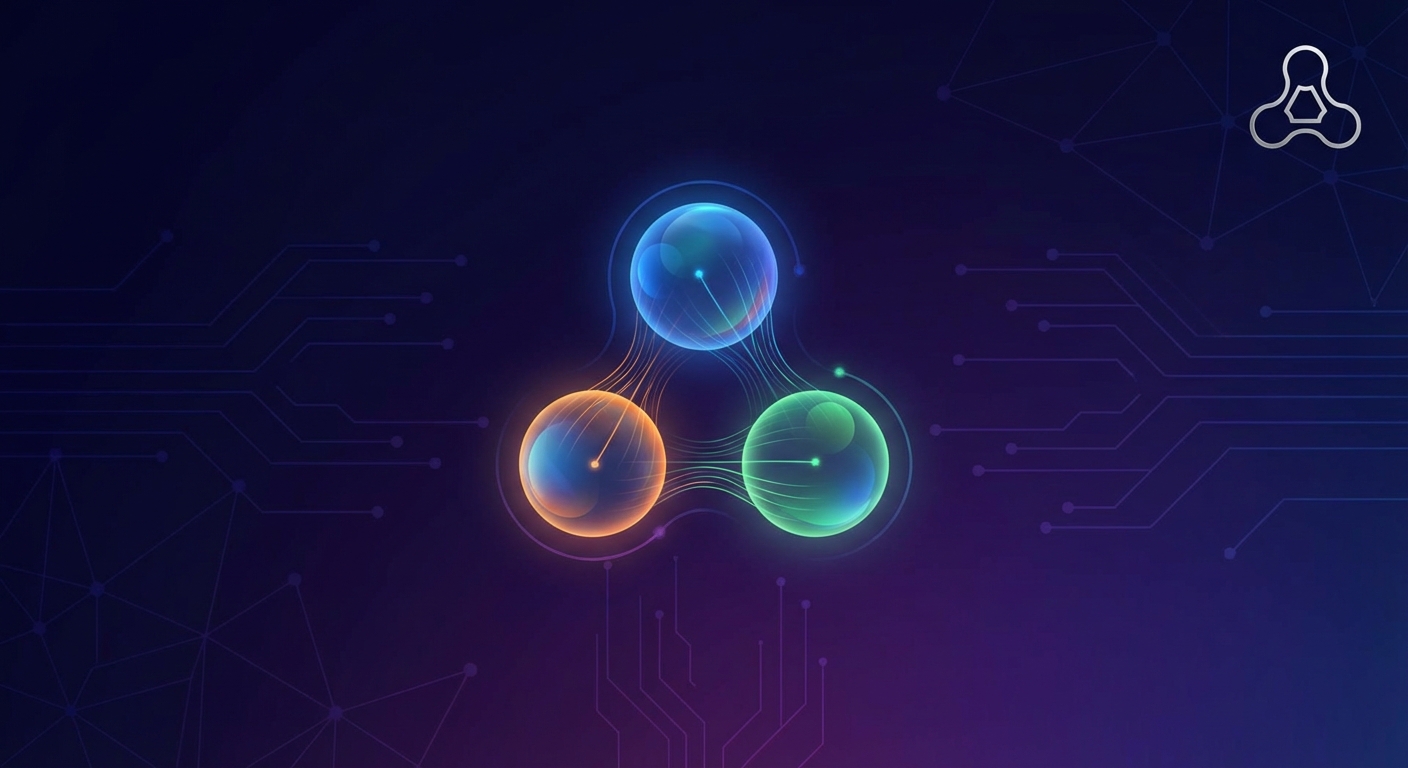Understanding AI Agents: Definition and Overview
TL;DR
- This article covers what AI agents are, what their capabilities is, and where they're being deployed across industries today. We'll explore various types of agents, from the simple to the complex, and discuss the core components that make them tick. Finally, we will provide an overview of the benefits and challenges, offering a clear picture of the future of AI agents in business.
What Are AI Agents? Defining the Concept
Alright, let's dive into what ai agents are all about -- ever feel like there's gotta be a smarter way to do things? Well, these agents are kinda like that "smarter way" made real. They're not just lines of code; they're designed to think and act on their own.
So, what exactly is an ai agent? It's more than just a program; it's an entity designed with a few key abilities:
- First off, it's autonomous. That means it can operate independently, sense its surroundings, and make choices without needing constant human hand-holding.
- It's goal-oriented. These agents aren't just reacting randomly; they're actively trying to achieve specific objectives.
- They can be embodied in software or hardware, it's not just lines of code. Think of a self-driving car (hardware) or a virtual assistant (software).
You might be saying, "Sounds like regular software to me!" But hold on, there's a HUGE difference.
- Adaptability is key. Unlike traditional programs that follow rigid instructions, ai agents can learn and adjust their behavior based on new information.
- Handling uncertainty is another biggie. They're designed to work even with incomplete or unclear data, kinda like how we navigate the world.
- They use goal-oriented behaviors, instead of pre-programmed instructions.
To make all this happen, ai agents have several essential parts working together:
- Sensors are their eyes and ears, gathering info from the environment.
- Actuators are how they take action, whether it's moving a robotic arm or sending an email.
- Perception is where the magic happens — interpreting the sensory data to make sense of the world.
- Decision-making is all about choosing the best course of action, based on the agent's goals and understanding.
- Learning is what lets them improve over time, getting better and better at what they do.
So, that's the basic idea. But how does this play out in real life? Well, that's where things get really interesting.
Types of AI Agents: A Comprehensive Classification
Alright, so you're thinking about ai agents? It's not just one-size-fits-all. Turns out, they come in different flavors, each with their own strengths and quirks.
Simple Reflex Agents
These agents are like that friend who always follows the recipe exactly. They react to what they see right now, based on a set of condition-action rules. If this happens, then do that.
- Think of a thermostat; if the temperature drops below a certain point, the heater kicks on. It's simple, but gets the job done in a predictable environment.
- These agents don't have a memory, so they can't learn from the past. And if things get a little unpredictable, they're kinda lost. They're great for simple tasks, but not much else.
Model-Based Reflex Agents
Now, imagine an agent that actually has a clue about what's going on around it. That's what model-based reflex agents are all about.
- They keep an internal model of the world, using sensors to update their knowledge. This model helps them predict what might happen next.
- For instance, consider a self-driving car uses sensor data, such as camera images and radar readings, to predict the actions of other vehicles.
- This is a huge step up because it means they can handle situations where they can't see everything directly. They can make educated guesses, which is pretty cool. They do this by using their internal model to simulate potential future states based on current perceptions and past experiences. For example, if a car's sensors detect another car braking, the model-based agent can infer that the car ahead is slowing down, even if its brake lights aren't immediately visible, and adjust its own speed accordingly.
Goal-Based Agents
Things get even more interesting with goal-based agents. These agents have goals—specific objectives they're trying to achieve.
- Unlike reflex agents, they don't just react; they actively plan and search for the best way to reach their goals.
- Think about a navigation app; it's goal is to find the fastest route to your destination, considering traffic, road closures, and other factors. It's way more sophisticated than just following a simple rule.
Utility-Based Agents
If goal-based agents are smart, utility-based agents are really smart. They don't just have goals; they have a sense of utility.
- They assign a value to different states of the world, and they try to take actions that will maximize their expected utility.
- For example, a financial trading ai agent might not only aim to make a profit (the goal) but also consider risk, market conditions, and transaction costs (the utility).
- This makes them way better at handling complex, uncertain situations.
Learning Agents
Finally, we have learning agents. These are the rock stars of the ai agent world. They can actually learn from their experiences and improve over time.
- They use machine learning techniques to adjust their decision-making process based on feedback.
- Consider an email spam filter; it learns to identify spam emails based on the messages you mark as spam, constantly improving its accuracy.
- These agents are super adaptable and can thrive in changing environments.
So, that's a quick rundown of the different types of ai agents. It's a spectrum, really, from the simple rule-followers to the super-smart, adaptable learners. Understanding these differences is key when you're thinking about what tasks you can automate with ai.
Real-World Applications of AI Agents: Transforming Industries
Okay, so you wanna know how ai agents are shaking things up in the real world? honestly, it's kinda crazy how many industries are being flipped on their head right now. I mean, who would've thought a few lines of code could do so much?
AI agents are making a splash in customer service. Think about chatbots – they're not just answering FAQs anymore. Now, they're diving deep, offering personalized recommendations and support. And hey, who doesn't love getting instant answers without waiting on hold forever?
Automated Support: Chatbots handle common customer queries 24/7. They free up human agents for complex issues. This is a win-win.
Personalized Assistance: AI agents analyze customer data to offer tailored product recommendations and solutions. This leads to happier customers and increased sales.
Cost Reduction: By automating routine tasks, AI agents can dramatically reduce customer service costs. More money in your pocket!
Marketing is getting a major upgrade thanks to ai agents. Forget generic ads – now it's all about targeted content and personalized experiences. I've seen some pretty slick campaigns lately that are clearly leveraging ai to figure out what I actually want (or, you know, what they think I want).
Targeted Advertising: AI agents analyze user data to create highly targeted ad campaigns. This ensures the right message reaches the right audience.
Predictive Analytics: AI agents use data to predict campaign performance and optimize strategies in real-time. This helps marketers make smarter decisions.
Lead Generation: AI agents automate lead generation and nurturing. They identify potential customers and guide them through the sales funnel.
Healthcare is seeing some incredible advancements with ai agents. From diagnosis to treatment planning, these agents are helping doctors make better decisions and provide more personalized care. I'm not a doctor myself, but I've read some amazing articles about how ai is helping catch diseases earlier and develop new treatments.
Diagnostic Assistance: AI agents assist doctors in diagnosing diseases by analyzing medical images and patient data. This can lead to earlier and more accurate diagnoses.
Personalized Medicine: AI agents analyze patient data to develop personalized treatment plans. This ensures patients receive the most effective care.
Remote Monitoring: AI agents monitor patients remotely, alerting doctors to potential problems before they become serious. This is especially useful for chronic conditions.
The finance industry is using ai agents to fight fraud and make smarter investments. I'm no financial guru, but even I can appreciate the power of ai to spot suspicious transactions and manage portfolios.
Fraud Detection: AI agents analyze transaction data to identify fraudulent activity. This helps protect businesses and consumers from financial losses.
Algorithmic Trading: AI agents automate trading strategies. They optimize portfolios based on market conditions.
Risk Assessment: AI agents assess vast amounts of data. This helps financial institutions make more informed decisions.
Supply chain management is becoming more efficient thanks to ai agents. From forecasting demand to optimizing routes, these agents are helping companies streamline their operations and reduce costs. My buddy works in logistics, and he's constantly raving about how ai is making his life easier.
Demand Forecasting: AI agents analyze market trends and historical data to forecast demand. This helps businesses optimize inventory levels.
Route Optimization: AI agents optimize delivery routes to minimize transportation costs and delivery times. This ensures products reach customers faster.
Predictive Maintenance: AI agents predict equipment failures, enabling proactive maintenance and reducing downtime. This keeps the supply chain running smoothly.
So, ai agents are kinda like the unsung heroes of the modern business world. They're quietly transforming industries behind the scenes, making things more efficient, personalized, and, well, just plain smarter.
The Building Blocks: Core Technologies Behind AI Agents
Alright, so you want to build an ai agent? It's not just about some fancy code, right? You need to understand the core tech that really makes these things tick.
First up, machine learning (ml). It's what gives ai agents the ability to learn without being explicitly programmed. There's a few ways this works:
- Supervised learning is like having a teacher show the agent the right answers, then the agent figures it out. This is great for things that need to be classified or predicted, like, say, is this email spam or not?
- Unsupervised learning is where you just throw the data at the agent and let it find patterns. Think about grouping customers into different segments based on their behavior.
- Reinforcement learning lets the agent learn through trial and error, like teaching a robot to walk by rewarding it for every step it takes.
Next, you need the agent to understand human language, that's where natural language processing (nlp) comes in. It's all about breaking down the barriers of communication.
- Text analysis can figure out what a piece of text is about, what's the sentiment of the writer?, etc.
- Speech recognition converts spoken words into text, and voice synthesis does the opposite. Ever talked to a chatbot that actually sounds kinda human? Thank nlp.
- Language translation lets the agent understand and communicate in different languages.
You know, sometimes an agent needs to see things too. That's computer vision.
- Image recognition lets the agent identify what's in a picture, is that a dog or a cat?
- Object detection goes a step further and locates specific objects within an image. Think self-driving cars, figuring out where the other cars are.
- Video analysis lets the agent understand what's happening in a video, is someone running or walking?
It's not just about storing information; it's about understanding it. This is where knowledge representation comes in.
- Ontologies are like structured knowledge maps that help computers understand relationships between concepts. They define terms and their relationships, creating a semantic network.
- Rule-based systems use "if-then" rules to make decisions. These are explicit statements of logic that the agent can follow.
- Reasoning algorithms allow the agent to make inferences and draw conclusions based on what it knows. This involves applying logical deduction or probabilistic inference to derive new information from existing knowledge.
Think about a customer service chatbot. It uses nlp to understand what you're asking, then it uses knowledge representation to find the right answer, then it uses voice synthesis to talk back to you. Honestly, it's pretty cool when you nail it all together.
So, all these core technologies are like the ingredients in a recipe, and how well you mix them together determines how good your ai agent is.
Benefits and Challenges of Using AI Agents
Okay, so you're thinking about diving into AI agents? It's like getting a super-powered assistant, but, you know, with its own quirks. There's a lot to unpack, but it's worth it.
One of the biggest wins with ai agents is the sheer boost in efficiency and productivity. Imagine automating all those repetitive tasks that bog down your team. It's like giving everyone an extra pair of hands, or maybe ten!
- Healthcare: AI agents can sift through mountains of patient data to identify trends and predict potential health crises. This frees up doctors and nurses to focus on direct patient care, and honestly, who wouldn't want that?
- Retail: Think personalized shopping experiences that adapt to each customer's preferences in real-time. This can lead to higher sales and happier customers. As a result, you can stop blasting out generic emails and start tailoring offers that people actually want.
- Logistics: AI agents can optimize delivery routes, manage inventory levels, and even predict potential supply chain disruptions. The result is smoother operations and reduced costs.
Beyond just doing things faster, ai agents can seriously slash costs and boost your return on investment.
- Finance: AI agents can automate fraud detection, assess risk, and even manage investment portfolios. This can lead to significant cost savings and better investment outcomes. That means instead of hiring an army of analysts, you can let ai do the heavy lifting.
- Manufacturing: AI agents can monitor equipment performance, predict maintenance needs, and optimize production processes. This leads to reduced downtime and increased output.
AI agents can enhance decision-making and accuracy. They can crunch vast amounts of data to identify patterns and insights that humans might miss.
- Marketing: AI agents can analyze customer behavior, predict campaign performance, and optimize strategies in real-time. This helps marketers make smarter decisions.
Of course, it's not all sunshine and rainbows. One of the biggest hurdles is data dependency and bias.
- AI agents are only as good as the data they're trained on. If that data is biased, the agent will be too.
Also, there's the issue of transparency and explainability.
- Sometimes, it's hard to understand why an ai agent made a particular decision. This can be a problem, especially in regulated industries.
And don't forget about security and ethical concerns.
- AI agents can be vulnerable to hacking, and they can also be used for nefarious purposes.
So, yeah, there's a lot to think about. But hey, that's what makes it interesting, right?
The Future of AI Agents: Trends and Predictions
Okay, so we've been talking about what ai agents are, how they're classified, and some of the challenges, eh? Now it's time to peek into the crystal ball, and it's looking...well, kinda busy.
More Collaboration: Expect ai agents to work together in multi-agent systems. Think of it like a super-powered hive mind, solving complex problems a single agent couldn't handle. For example, multiple agents could coordinate to manage a smart city's traffic flow, with one agent optimizing traffic lights, another managing public transport schedules, and a third monitoring pedestrian movement.
Embodied AI: We're not just talking software anymore, folks. AI agents are also being embedded into robots and other physical forms. This means agents will be able to interact with the physical world directly, performing tasks like manufacturing, exploration, or even personal assistance. Think of robots that can clean your house, assist in surgery, or explore dangerous environments.
AI on the Edge: Forget relying solely on the cloud. Imagine ai agents processing data right on your devices, making everything faster and more private. This "edge AI" means that devices like your smartphone, smart watch, or even smart appliances can perform complex AI tasks locally, without needing to send data to a remote server. This is great for real-time applications and for situations where internet connectivity might be unreliable.
These trends ain't just tech buzzwords. It's about ai becoming more integrated in our lives, from businesses to healthcare and... pretty much everything else.
So, yeah, the future's looking pretty wild.






